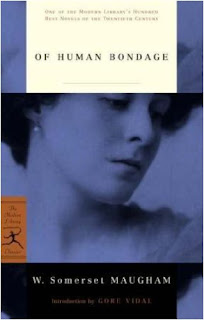 |
| View from the Bridge |
Skaters pirouetted on the ice rink, but the ice on the river was melting. We decided to take a walk downtown because the sidewalks were cleared. We wore our spring coats and I my black velvet hat. (Rather like Sara Monday or Mrs. Harris.)
We stopped at the coffeehouse. It had moved to another location and it took awhile to find it. "When did you move?" "July." Last time we were here the building was empty, and there was no sign as to where they had decamped. It was almost closing time, so we took our coffee and muffins to a pedestrian bridge, a longer distance than we'd remembered because we usually are on bicycles.
We plopped down in a little alcove where you overlook the river. We had misremembered benches. It was good to soak up Vitamin D and see the snow melting, MELTING.
Then we walked on. There are several bridges to cross. Here's a snapshot of some buildings from a bridge.
This is the new pedestrian bridge. It's near the hall where Paul McCartney, Green Day, and Led Zeppelin have played in concert. In theory we could park on this side and walk across the bridge. But we usually stay home.
I'm sure what you really want to know is WHAT I'M READING. I finished W. Somerset Maugham's Of Human Bondage yesterday.
I am a fan of Somerset Maugham and especially like The Painted Veil, The Moon and Sixpence, The Razor's Edge, and his short stories. He is a superior storyteller, a predecessor of Graham Greene, and depends more on surprising plot twists than on innovative writing. His writing is plain but compelling and breathtaking because he vividly imagines his restless, itinerant heroes and anti-heroes. His books are craftsmanlike page-turners and the time flies.
His most famous novel is Of Human Bondage. It was my introduction to Maugham, but if I had not gone on to his short stories, I might never have discovered his brilliance.
This time, however, I noticed how marvelous the second half of Of Human Bondage is. It's so good that I will reread it someday. Published in 1915, this bildungsroman made Maugham's reputation, and is reminiscent of Compton Mackenzie's 1913 masterpiece Sinister Street. It is the coming-of-age story of Philip Carey, a young man with a club foot who suffers many losses and tragedies growing up. He studies art in Paris after dropping out of school and then moves to London to study medicine. He falls in love with Mildred, an anorexic waitress with green skin (really) who has no interest whatsoever in Philip. She is rude, mean, and stupid, which Philip readily admits, but her very indifference attracts him. Philip becomes obsessed.
Maugham is a strong realistic novelist, he delineates the character of a clinical depressive, and this long novel is more unflinchingly gloomy than his shorter, more tightly-plotted novels about artists and rebels. It is reminiscent of the novels of Theodore Dreiser, who, by the way, praised it in The New Republic.
Here is an example of Mildred's charm when Philip approaches her at Victoria Station:
But this kind of scene simply ties him more tightly to her. His masochism is upsetting. He debases himself to the point where he goes down, down, down himself. Eventually she runs off with another man and Philip builds a rewarding life, aceing his medical exams and spending his time with an intelligent, loving woman, a writer of novelettes. But Mildred, on a downward course, finally seeks him out again and almost ruins his life. She is pregnant and he allows her to live with him. I won't even tell you where this goes because it is so horrifying."Oh, I'm all right. I haven't got much time to waste.""D'you mind if I walk down Victoria Street with you?"
"I'm none too early. I shall have to walk fast," she answered, looking down at Philip's club-foot.
He turned scarlet.
"I beg your pardon. I won't detain you."
"You can please yourself."
There is some excellent writing here, and parts are even Dickensian, like his friendship with Thorpe Athleny, a philosophical, charming man who is the father of many children, works as an advertising writer for a draper, and takes in Philip when he is down-and-out.
But start with his short stories or shorter novels, if you're a Maugham neophyte, because they're more characteristic. And better.




2 comments:
We had a warm day here too. I was not able to take much advantage of it as I had so much work for my teaching, but I did manage a short walk with Jim.
Izzy went to her social group -- 1st meeting -- and they went to Kennedy Center to see Shear Madness. She seemed to have had a good time.
I've wanted to read Maughn's Painted Veil for a while. I need to get myself to stop projects and start to read for pleasure more. The 6 weeks I spent on the Trollope paper just put me back. I do agree on Maughn and remember _Of Human Bondage_ as so painful but intensely compelling.
Ellen
Ellen, it IS hard to do everything when you're teaching. Writing a Trollope paper in six weeks sounds like a triumph to me.
The Painted Veil is short, so perhaps easier than the Poldark books.
Glad about the social group.
Post a Comment